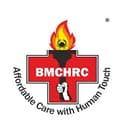Master of Science (MSc) in Cardiac Care Technology
OR
Prepared by Docthub Courses Team ∣
Last updated on 02 Jun 2025
Overview
The MSc in Cardiac Care Technology is a 2-year postgraduate program that equips students with comprehensive knowledge and practical skills in cardiovascular medicine and diagnostics. The curriculum covers clinical cardiology, cardiac procedures, pacemaker analysis, echocardiography, and more. Graduates are trained to assist physicians in diagnosing and treating heart conditions, as well as performing cardiac tests. The program aims to produce qualified professionals for roles in hospitals, clinics, and academia.

Table of Content
Highlights:
| Particulars | Master of Science (MSc) in Cardiac Care Technology |
| Course Type | Postgraduate course |
| Duration | 2 years |
| Eligibility | Bachelor's degree in medical sciences, life sciences, or related fields |
| Admission Process | Entrance exams or merit-based selection, depending on the college |
| Fees | Varies across institutions, usually between ₹ 50,000 to 2,00,000 per year |
| Colleges in India | SVIET, Patiala Dolphin PG college Sumandeep, Vadodara MGM School of Biomedical Sunrise University, Mumbai AJIMS, Bangalore |
| Job Roles | Cardiac Technician Clinical Cardiologist Assistant Echocardiographer Pacemaker Specialist |
Master of Science in Cardiac Care Technology Eligibility:
To pursue an MSc in Cardiac Care Technology, candidates typically need to have completed an undergraduate degree (BSc or equivalent) in medical or life sciences, such as a BSc in Medical Imaging, BSc in Cardiac Care, or related fields.
MSc in cardiac care technology Fees:
The fees for the MSc in Cardiac Care Technology vary depending on the institution, ranging from₹50,000 to ₹ 2, 00,000 per year.
Who Should Do This Course?
This program is ideal for:
- Graduates holding a Bachelor's degree in Cardiac Care Technology or Cardiovascular Technology.
- Individuals with a two-year Diploma in Cardiovascular Technology (following a general B.Sc.) accompanied by a minimum of three years of relevant experience.
Why Study This Course?
Enrolling in this program offers several advantages:
- Advanced Expertise: Deepen your understanding of cardiac diagnostics, therapeutic procedures, and patient management.
- Career Advancement: Enhance your qualifications for roles such as Cardiac Technologist, Echocardiography Specialist, or roles in cardiac research.
- Research Opportunities: Engage in cutting-edge research, contributing to innovations in cardiovascular care.
Admission Process
While specific processes may differ, a typical admission procedure includes:
- Application Submission: Complete and submit the application form through the institution's official website.
- Entrance Examination: If required, appear for the entrance test as scheduled by the institution.
- Interview: Some institutions may conduct personal interviews to assess candidates further.
- Document Verification: Provide necessary academic and professional documents for verification.
- Admission Confirmation: Upon selection, complete the admission formalities, including fee payment.
MSc in cardiac care technology Syllabus:
| Year/Semester | Courses |
| Year 1 | Introduction to Cardiology Cardiac Diagnostic Procedures Echocardiography and Cardiovascular Imaging Medical Instrumentation in Cardiac Care |
| Year 2 | Advanced Cardiac Care Techniques Pacemaker Analysis Cardiac Rehabilitation Internship and Practical Training |
Scope:
The scope of an MSc in Cardiac Care Technology is broad, with career opportunities in hospitals, cardiac rehab centers, and diagnostic labs. Graduates can work as Cardiac Technologists, Echocardiography Specialists, or Cath Lab Technicians. With rising heart diseases, demand is growing in both government and private sectors, including opportunities in research and medical equipment companies.
Further Study Options:
After completing an MSc in Cardiac Care Technology, students may choose to pursue further studies in related areas such as:
- PhD in Cardiology
- Postgraduate Diploma in Cardiac Rehabilitation
- Fellowships in Cardiac Imaging or Electrophysiology
Career Opportunities after This Course:
- Cardiac Technician
- Clinical Cardiologist Assistant
- Echocardiographer
- Pacemaker Specialist
Master of Science (MSc) in cardiac care technology salary:
MSc in Cardiac Care Technology Salary in India:
- Entry-Level (0-2 years): ₹2.5 - ₹4.5 LPA
- Mid-Level (3-6 years): ₹5 - ₹8 LPA
- Experienced (6+ years): ₹9 - ₹12 LPA
Explore colleges for this course
Quick Go Links

Explore this course by location..
by Cities
Related Job Roles
Related Job Vacancies
View All 26 Jobs

FAQS
What is a Master of Science (MSc) in Cardiac Care Technology?
This postgraduate program specializes in cardiac diagnostics, interventional treatments, and patient care, equipping professionals for careers in hospitals, research, and healthcare technology.
What is the average cost of this program?
The fees range from ₹0.5 to ₹1.6 lakhs, depending on the university, location, and facilities offered.
What is the duration of the MSc in Cardiac Care Technology?
The MSc in Cardiac Care Technology program lasts for 2 years.
Which is the best college for MSC cardiovascular technology?
Some top institutions include MGM School of Biomedical Sciences, Sumandeep Vidyapeeth, AJIMS Bangalore, and SVIET.
Which university offers MSc cardiac care technology in India?
Universities like Dolphin PG College, Sunrise University, Sumandeep Vidyapeeth, and MGM School of Biomedical Sciences offer this program.
Related Course titles

Qualifications
BSc Cardiac Technology
BVoc Cardiac Care Technology
Related Specialty
Cardiology
Cardiology Nursing
Cardiac Intensive Care







